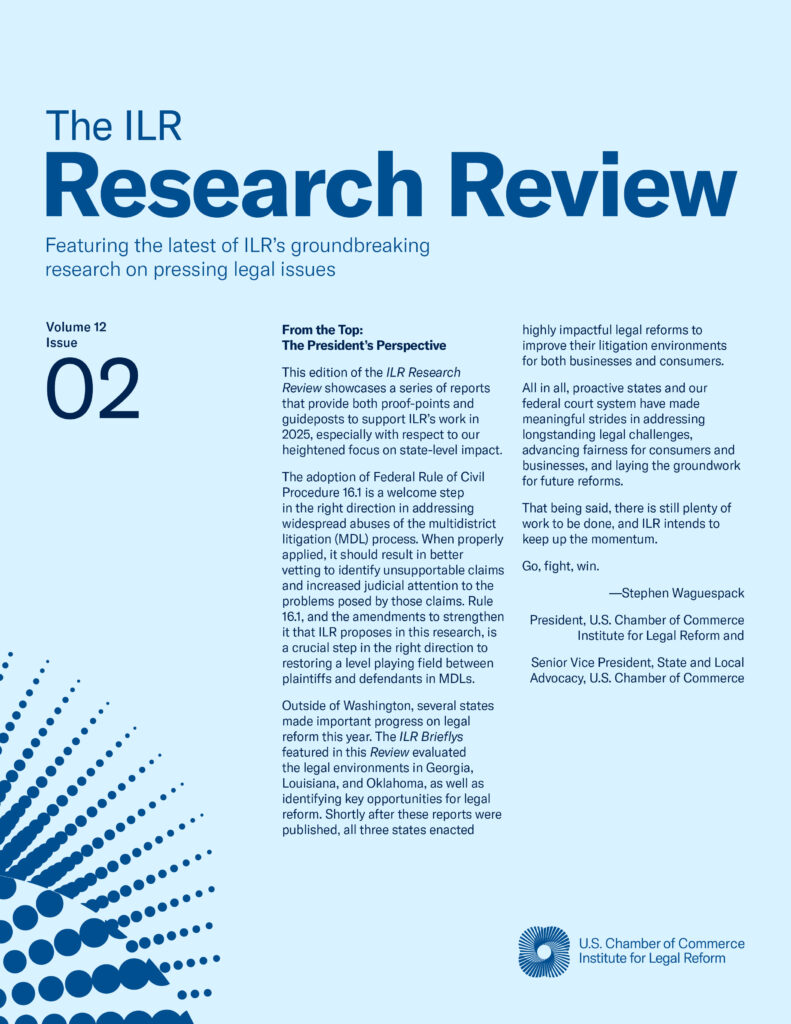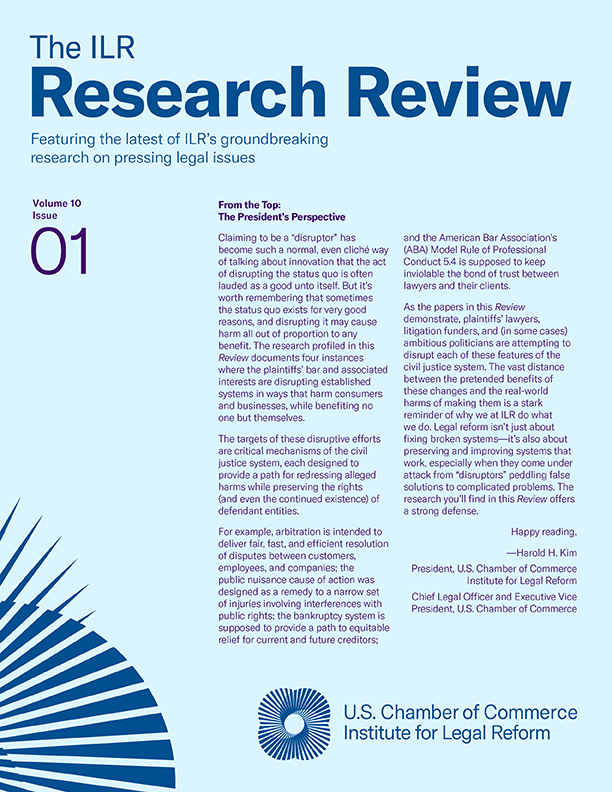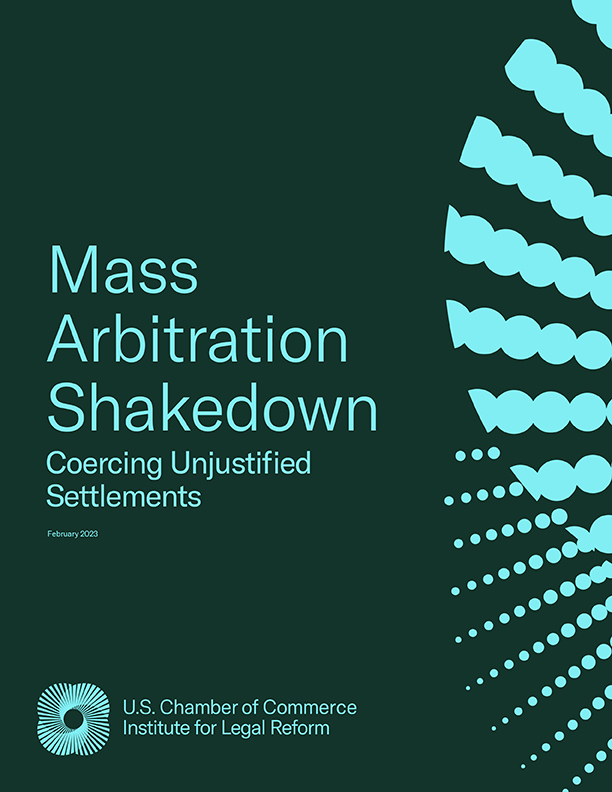Multidistrict litigation proceedings (MDLs) were created as an efficient way to handle pretrial proceedings in hundreds or thousands of similar cases against the same defendant. However, the lack of an interlocutory appeal mechanism makes them fundamentally unfair for defendants. If a defendant makes a dispositive motion—on preemption or expert evidence, for example—and is denied, it cannot immediately appeal. But if they win the motion, plaintiffs can appeal right away.
Dispositive motions during MDL proceedings can influence the fate of thousands of cases, meaning that appellate review of the denial of such dispositive motions is an extremely important stage of the process. The current unequal treatment of defendants and plaintiffs at that stage is a clear imbalance that needs to be corrected. This imbalance is especially impactful because as of 2018, over half of the federal civil caseload is concentrated in MDLs.
ILR’s research calls on both Congress and Advisory Committee on Civil Rules to address the issue through legislation and/or a change to the Federal Rules of Civil Procedure:
- Congress: By taking up and passing the Fairness in Class Action Litigation Act (FICALA), which was passed by the House in 2017, Congress could require federal appeals courts to accept an interlocutory appeal of an order made in a mass tort MDL if “an immediate appeal from the order may materially advance the ultimate termination of one or more civil actions in the proceedings.”
- Advisory Committee: By creating an amendment to the Federal Rules of Civil Procedure, the Committee could authorize prompt appellate review of key interlocutory rulings in mass tort MDLs, including motions to dismiss for lack of personal jurisdiction; motions for summary judgment; and Daubert motions.



